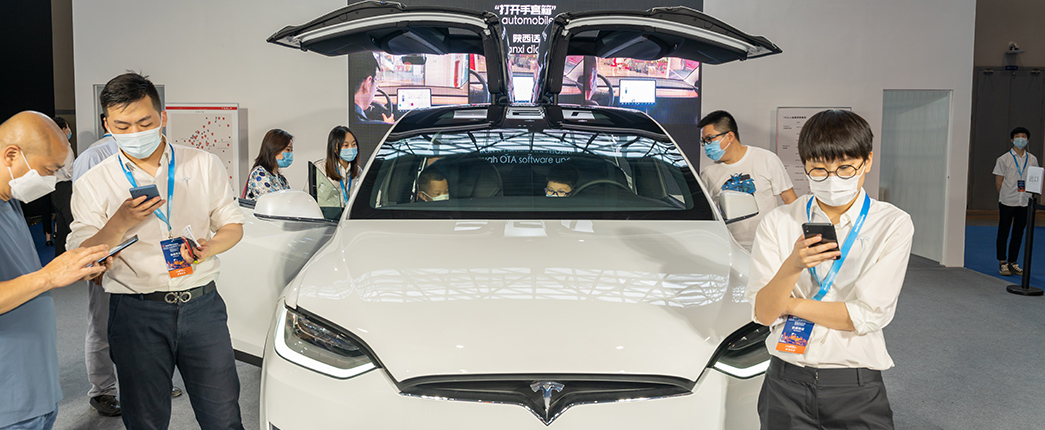
Like him or loathe Elon Musk, the Marmite CEO of car company Tesla has revolutionized the passenger car business from root to branch. From the cars themselves to the sales model and the way the plants are powered, the game has changed and legacy original equipment manufacturers are scrabbling to respond. Tesla is also a useful barometer of the EV market overall.
Tesla is often in the news, occasionally for the wrong reasons, such as when Musk bought social media company Twitter. He dismayed investors and sent the company’s already-high stock price into free fall. Tesla stock is a rollercoaster, taking investors on stomach-wrenching rides from all-time highs to crashing lows. Sinking money into rockets that could make a “rapid unscheduled disassembly” could also prove costly to the company’s health.
Tesla is mulling making cars for the Indian market at its Berlin gigafactory, which reopened in early 2024 after German environmentalists were accused of setting fire to electricity supply infrastructure near the plant. Protestors are angry about trees being cleared to make way for the plant’s expansion. Berlin was producing an estimated 6,000 cars per week at the time.
German auto unions were also not best pleased with Musk’s employment practices. A court ruled in February 2024 that the company had flouted union election rules. Musk is publicly anti-union and has been effective at keeping them out of his plants even though pay is subpar, hours are long and injury rates are high, allegedly. There are, or have been, industrial disputes between workers and management in the US and Sweden as well.
The decision to produce cars for the Indian market in Germany comes ahead of a Tesla delegation that will look for locations for a plant in India. Like neighboring China, India has a vast population with a growing middle class. Indians buy 1.5 million EVs per year. Even though most of them are two- and three-wheelers, people are already comfotable with electric mobility.
In China, where Tesla makes one-third of its cars, production from the Shanghai factory has been patchy over the past three years. President Xi Jinping’s zero COVID policy kept the plant closed for weeks on end in 2021 and 2022. Shutdowns in May 2022 due supply-chain issues; December 2022 because of COVID; and in February 2023 and May 2023 for upgrades. The company lowered prices for some models in October 2022, January 2023, twice in August 2023 and in January 2024.
But in the topsy-turvey world of Tesla, as the company’s value took a hammering, sales dipped and Musk played at being a media mogul, the company launched two new models in Thailand.
The California-based independent carmaker dominates the global battery electric vehicle market. It has outsold every EV maker bar none, having delivered almost 2 million BEVs in 2023. Only now is the competition catching up with technology and sales after Tesla has been operating for 20 years.
Tesla is not the only game in town. Carmakers in Europe and Asia are chipping away at Tesla’s market lead in sales and range. Volkswagen delivered 293,000 EVs in 2022, an increase of 25% year on year, and China’s BYD is working to knock Tesla off the top spot at home. The Chinese company sold more EVs in January 2024, when including hybrids, but fell short of outdoing Tesla on pure BEVs.
BYD’s CEO Michael Shu bristled at the comparison, telling Automotive News, “BYD has a vast of portfolio of brands and technologies — including our state of the art plug-in hybrids — while Tesla is electric cars only with a single brand. We are two very different animals.”
In April 2024, Tesla shelved plans for a low-cost model fearing the competition from Chinese OEMs was too fierce. The company hoped the car could unlock the mass market and please investors.
Policymakers have also snubbed Tesla. Along with Lucid and Rivian, President Joe Biden did not invited the company to the White House EV summit in August 2021. The cold shoulder showed Detroit and its unionized workforce are still a force to be reckoned with. Biden’s Bipartisan Infrastructure Law earmarked U.S. $7.5 billion for a national network of 500,000 chargers, $7 billion to domestic battery manufacturing and $10 billion for clean transit and school buses.
While Tesla still dominates the EV market, its vaunted position is coming under attack from competitors around the world as well as a general sales cooling off.

Sorry, a technical error occurred and we were unable to log you into your account. We have emailed the problem to our team, and they are looking into the matter. You can reach us at lubesngreases@omeda.com.
Click here link to homepage